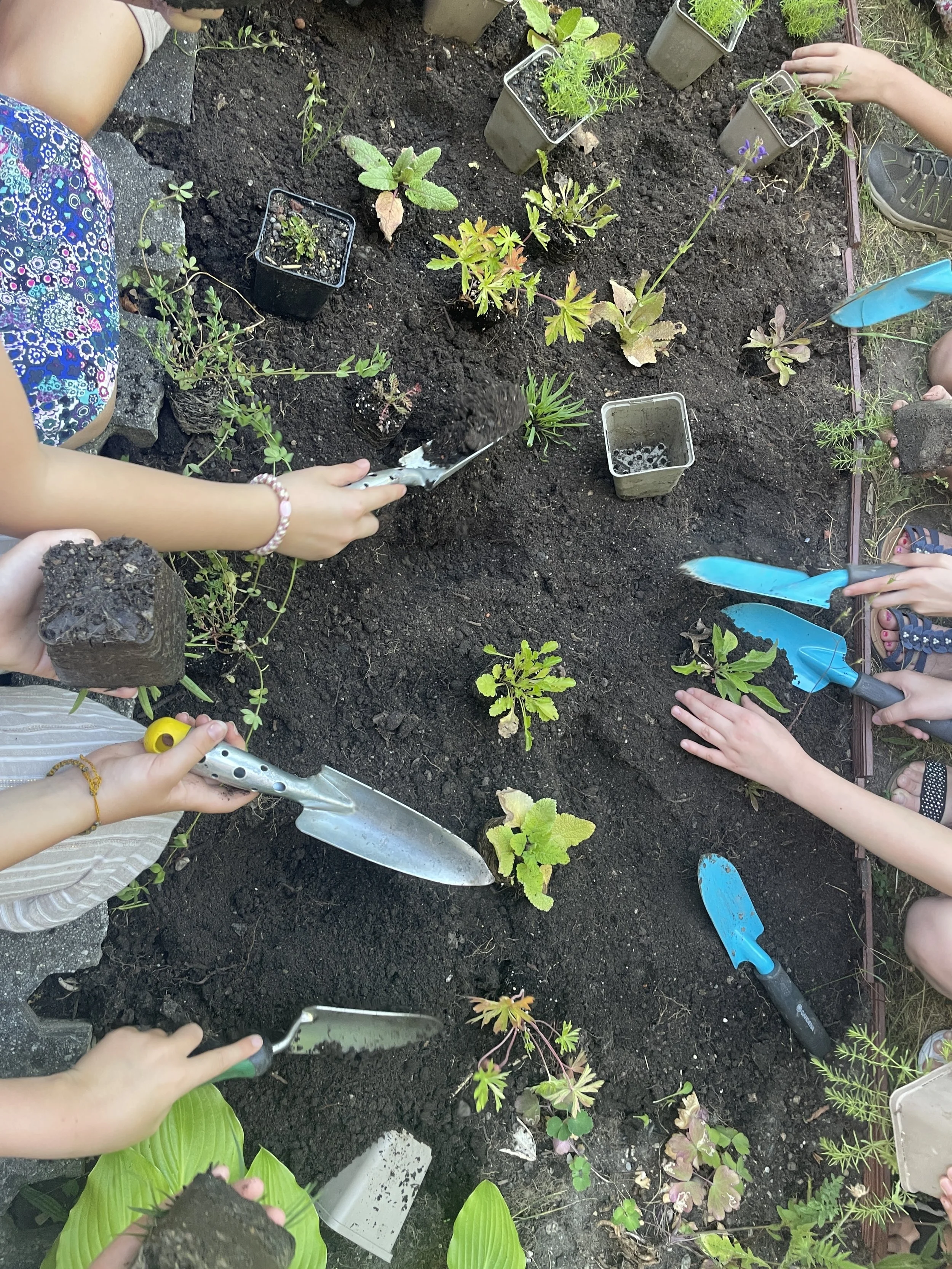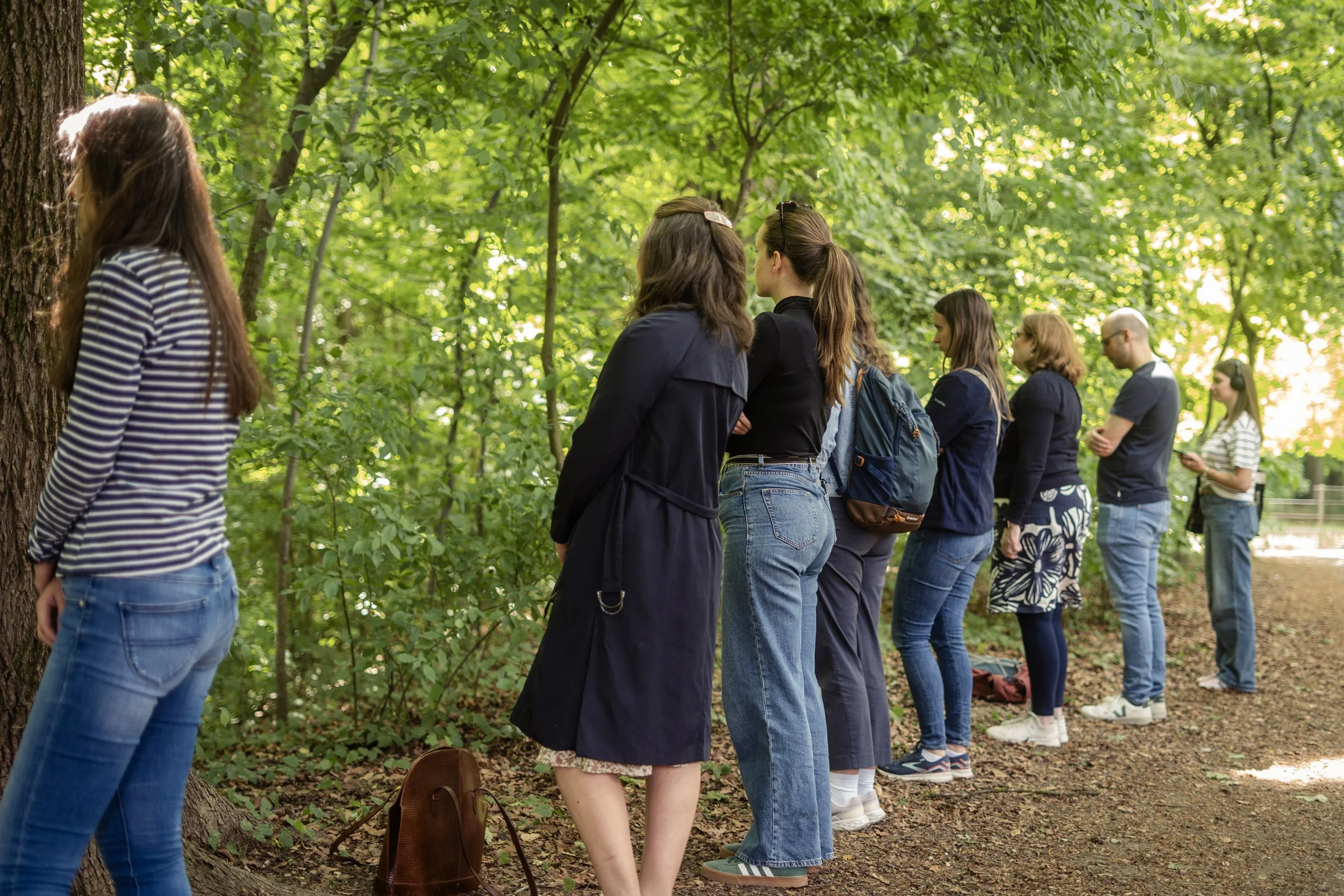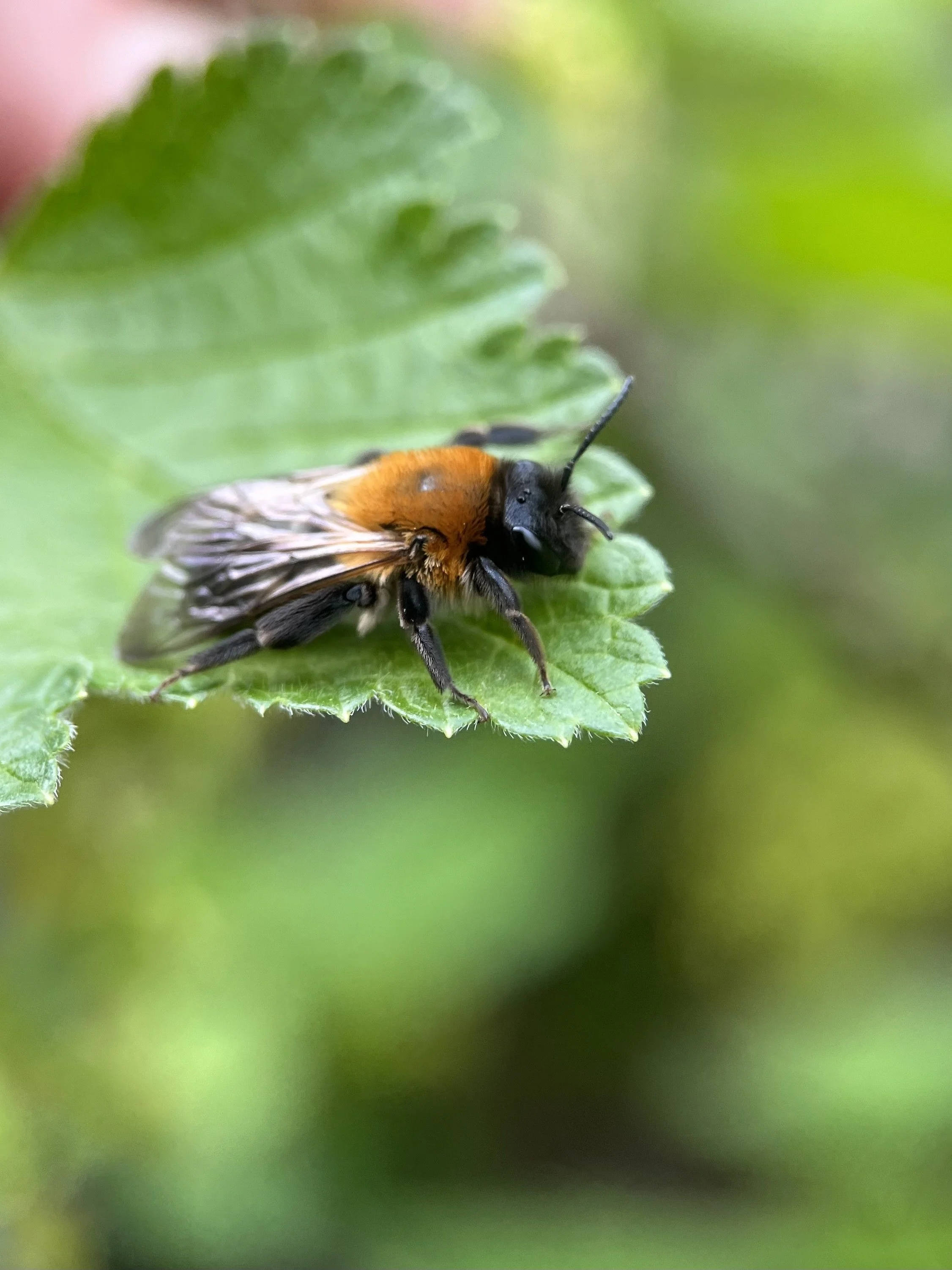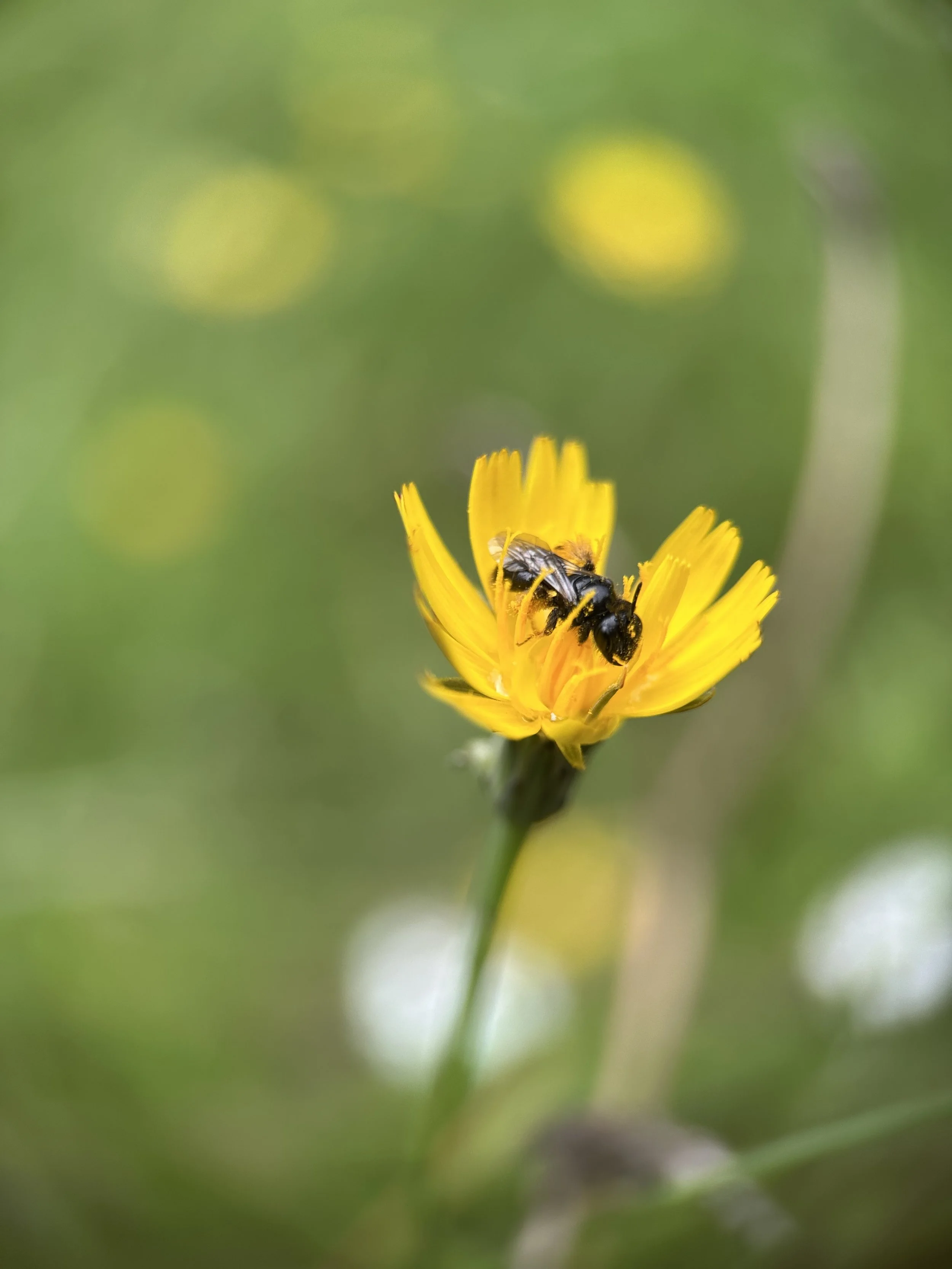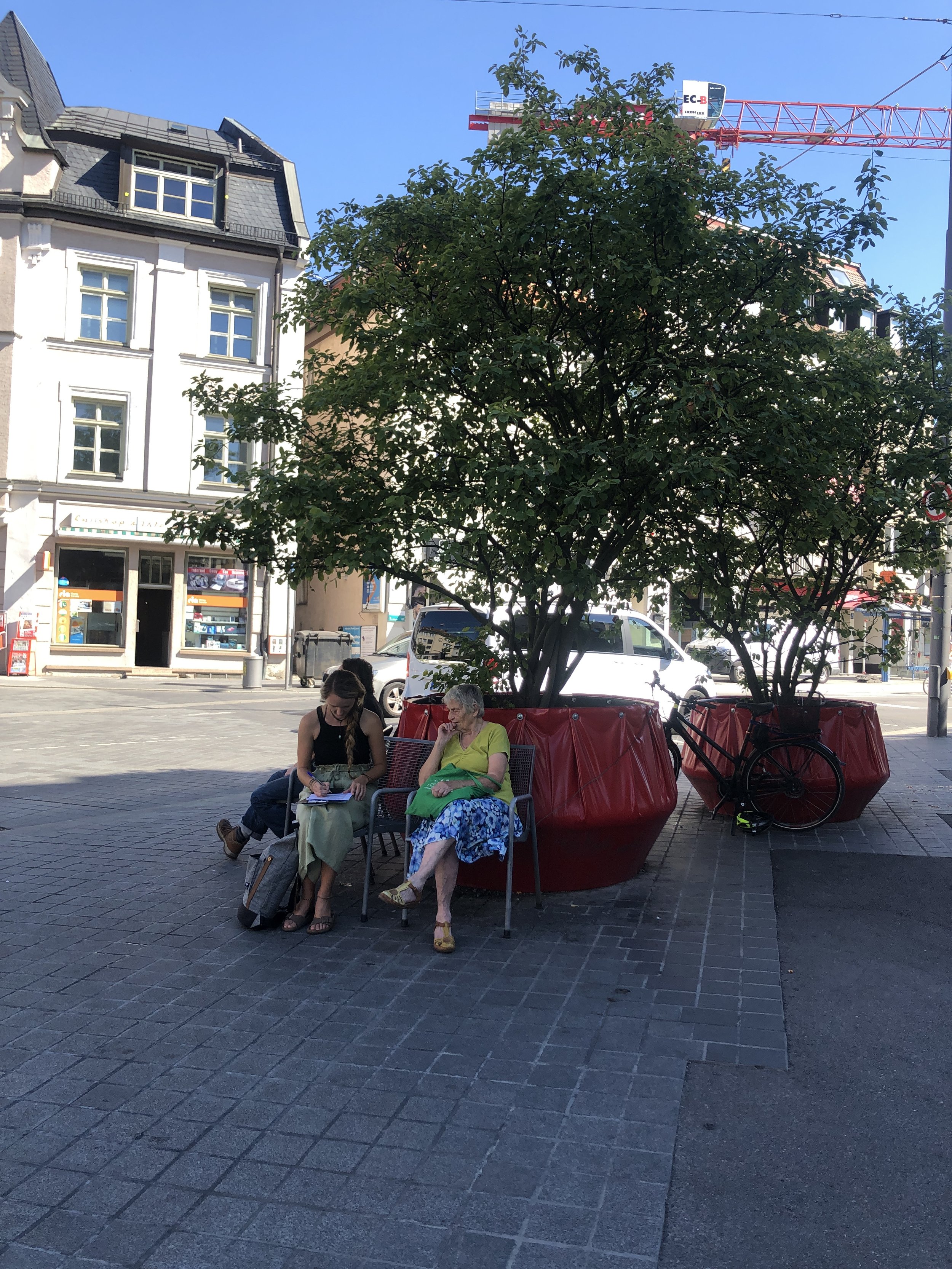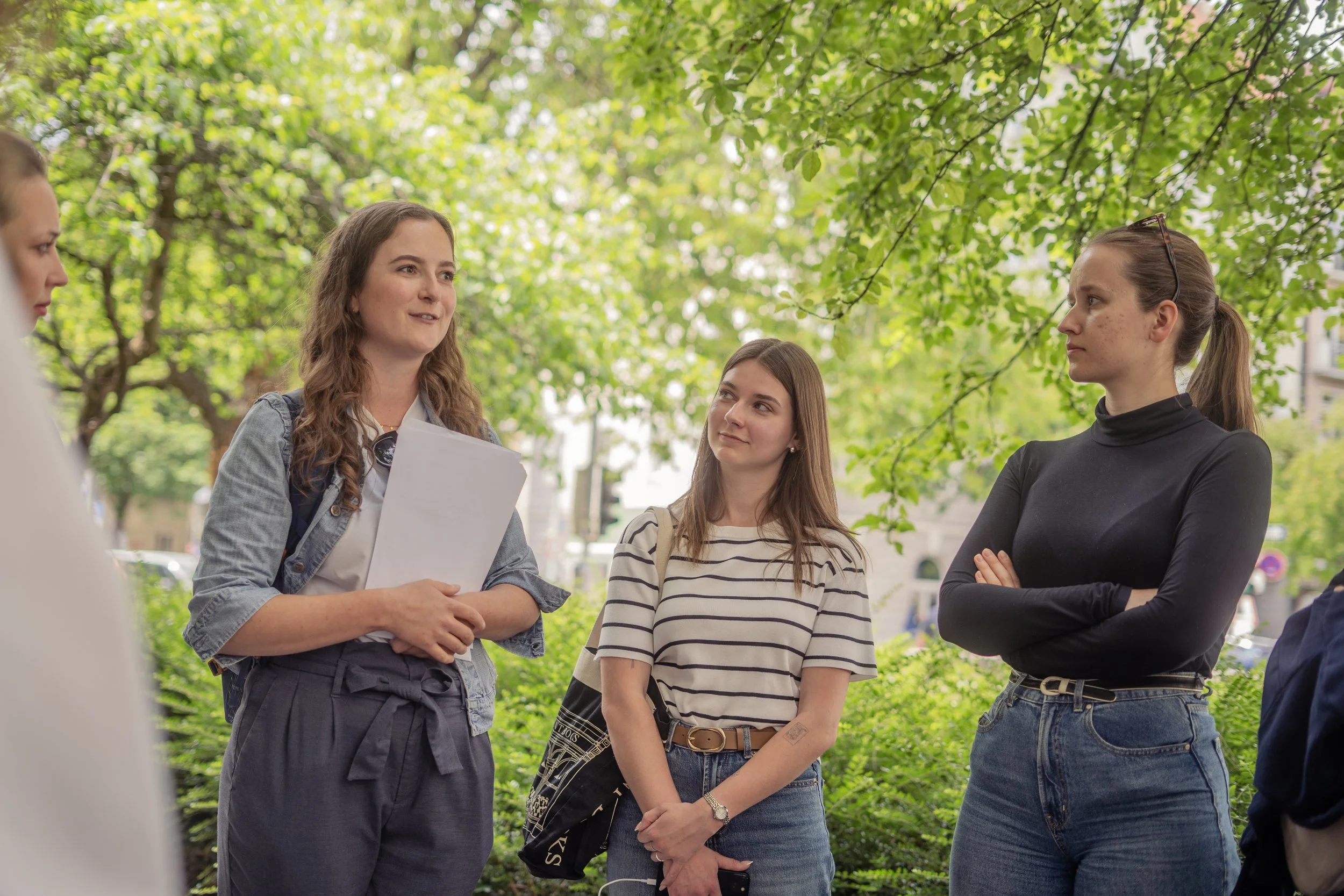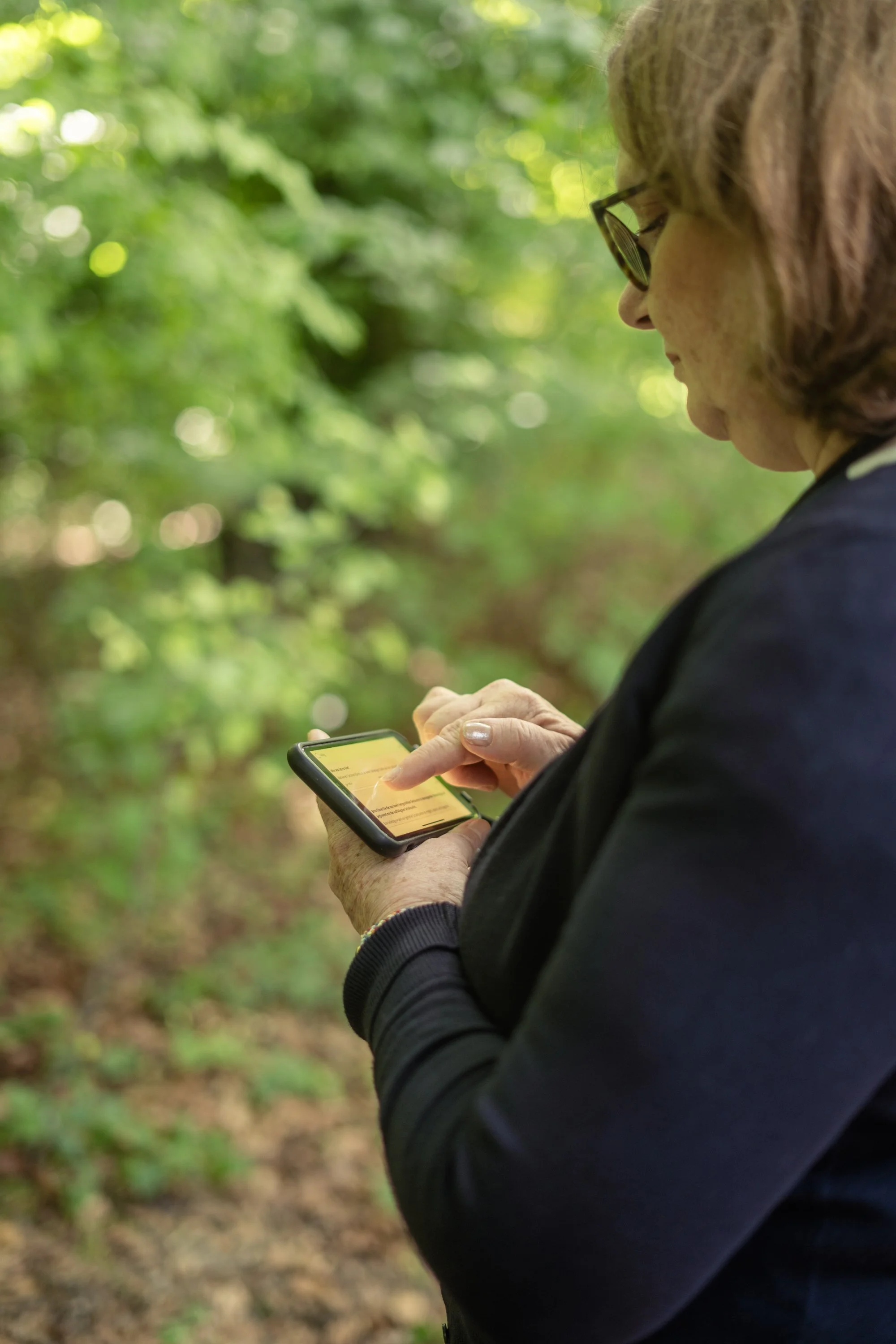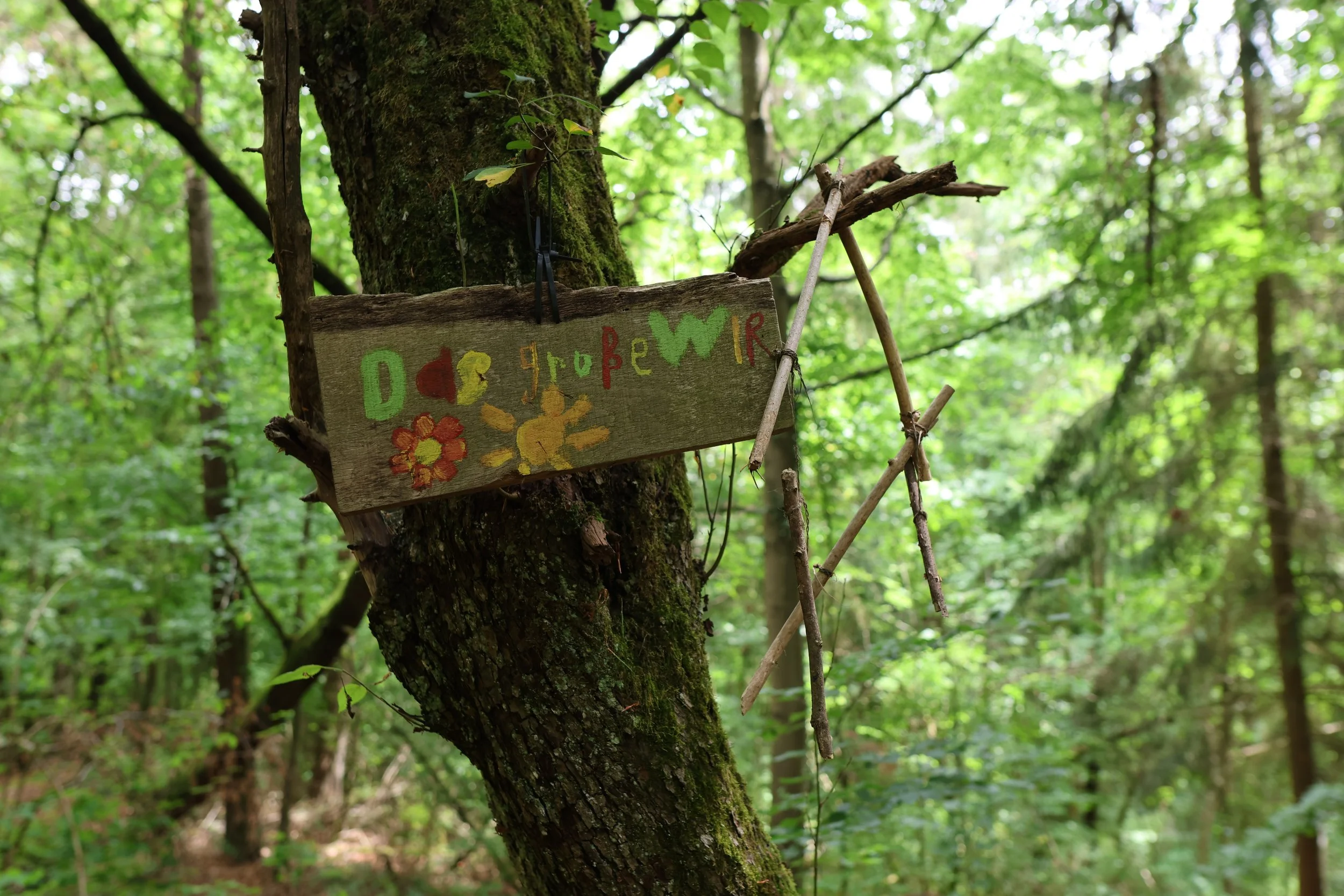OUR CURRENT RESEARCH PROJECTS
URBAN COMMUNITY GARDENS
‘Forschen für Wildbienen’
How do urban gardens contribute to wild pollinator conservation? How can urban gardeners participate in pollinator conservation? In our research project Forschen für Wildbienen, we are investigating the relationships between pollinator diversity, pollination services and garden habitat management in urban community gardens. We work in 30 community gardens in Berlin and Munich Germany and use citizen science to engage gardeners in the research process. We use an inter- and transdisciplinary approach to understand the biodiversity, ecology and conservation of wild pollinators in urban gardens not only from a scientific perspective, but also to contribute to the social understanding of wild pollinators, with focus on bees.
Combining urban ecological research and citizen science, we will develop and implement conservation measures in gardening practice with gardeners and share recommendations for gardeners, politicians, urban planners and nature conservationists.
This research is funded by the Deutsche Postcode Lotterie.
URBAN PARKS
‘StadtOasen’
The significance of urban ecosystems is increasingly linked to aspects of biodiversity and urban climate adaptation, as well as to the health of people in the city. Our Urban Oases project explores how objective and subjective characteristics of Munich's parks are linked to the regulation of microclimate, thermal comfort and mental relaxation. We focus on the potential of small public green spaces and hypothesize that many small urban oases (<1ha) in aggregate have a great impact as nature-based solutions in urban climate adaptation and public health promotion.
Using an interdisciplinary approach with methods from forestry science, urban meteorology and empirical social research, we investigate the effects of urban oases on the immediate environment and human health, and determine which vegetation structures are beneficial for health and microclimate within oases. We derive evidence-based and target-oriented recommendations for the future development of green spaces in Bavarian cities and beyond.
This research is funded by the Bavarian State Ministries for Health and Care (StMGP) and for Environment and Consumer Protection (StMUV) under the Project „Klimawandel und Gesundheit“ (VKG).
suds
Research Training Group Urban Green Infrastructure
The RTG UGI integrates urban planning and design, urban ecosystems, and human health with the concept of social-ecological-technological systems (SETS). The RTG conducts research in parks, green streets, and sustainable drainage systems (SUDS) in collaboration with urban communities and policymakers. The research is divided into three interactive and interdisciplinary clusters to educate motivated scholars equipped to approach urban-centered problems with advanced tools to understand and propose sustainable solutions for people and ecosystems.
In this research, UPE will conduct experiments in SUDS using different combinations of high-carbon organic soil amendments (HCAs) in combination with nutrients to improve soil structure and functionality in SUDS for contaminant remediation.
This research is funded by the Deutsche Forschungsgemeinschaft.
ORCHARD meadows
StreuWiKlim
Orchard meadows are of high socio-ecological value as traditional, extensive agroecosystems. Climate change threatens the ecological and cultural function of these systems, yet which factors contribute to the resilience to climate change lack systematically studied.
Our project StreuWiKlim asks factors influence the resilience of orchards to changing climatic conditions with the goal to develop region-specific adaptation strategies. Using a Farmer Science approach, we will work together with orchard managers to identify the influences induced by climate change on orchard cultivation in Bavaria and to assess regional differences in order to develop sustainable adaptation strategies. We will examine to what extent different management practices, biodiversity and structural richness contribute to the resilience of orchard meadows to changing climate conditions and can therefore be recommended as adaptation measures.
This research is a collaboration with the HWST and funded by the Bayerisches Staatsministerium für Ernährung, Landwirtschaft und Forsten (StMELF)




